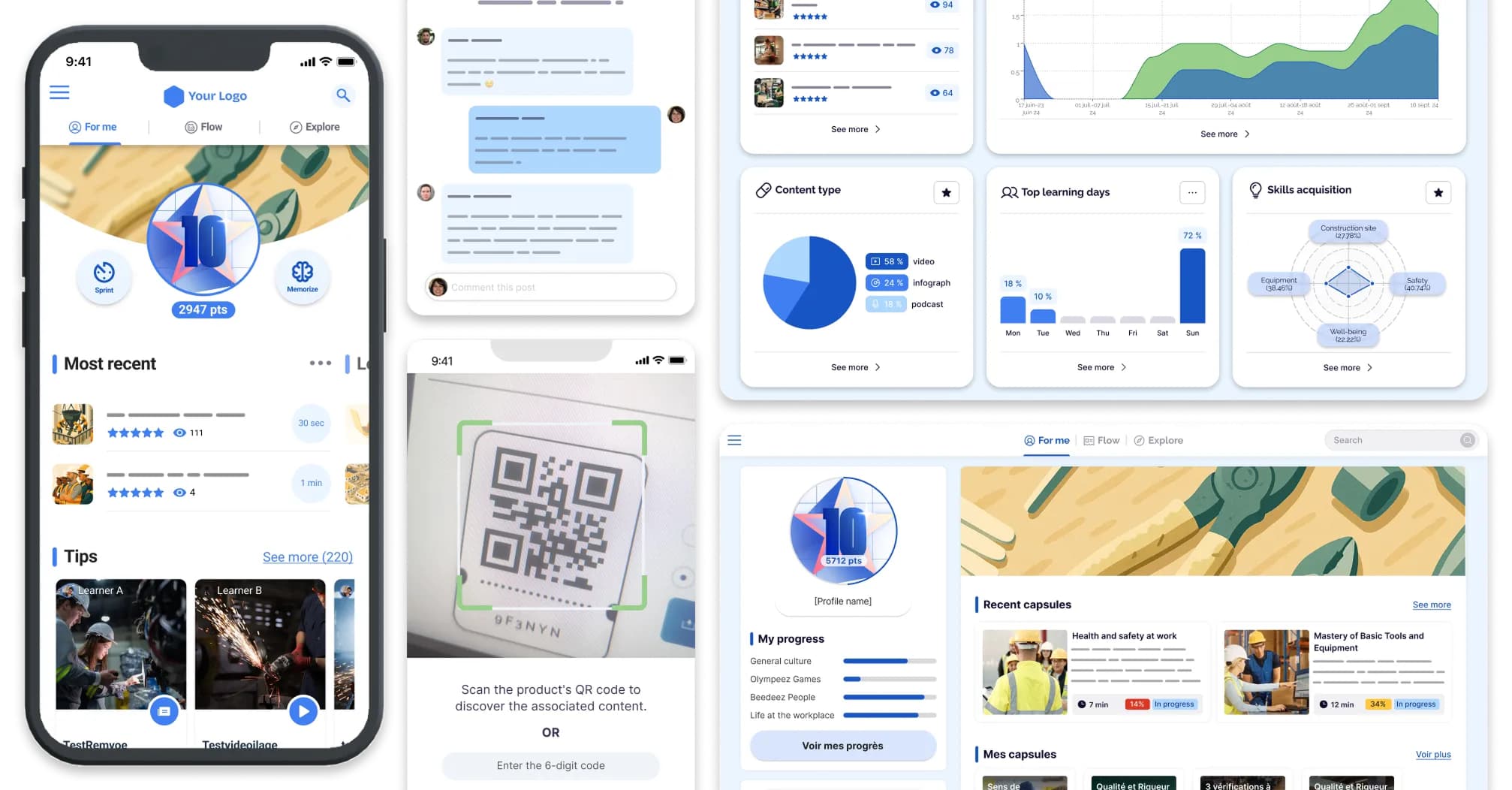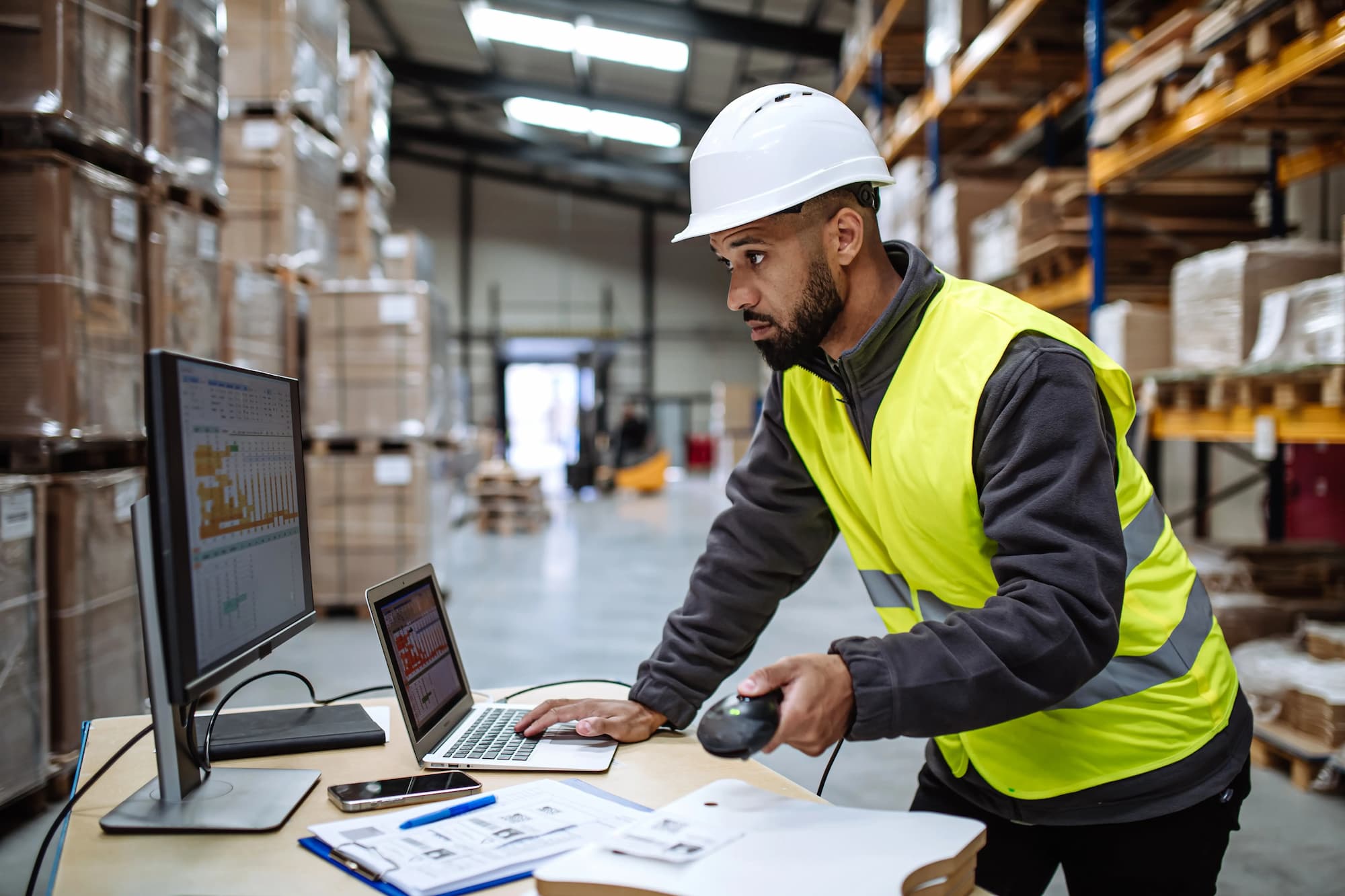In theIn logistics jobs, the smallest mistake can be expensive. Incomplete preparation, poor entry, or missing loading can cause delays, increase costs, and hinder customer satisfaction.
To limit these risks on a daily basis, nothing replaces training adapted to the realities of the field..
→ By anchoring best practices, clarifying procedures and strengthening team reflexes, you secure your operations and promote the development of skills.
Decryption: reducing human errors in logistics is neither a matter of chance nor improvisation
In a logistics environment where the precision and speed are essential, the slightest human error can trigger a series of consequences: delays, complaints, additional costs, loss of trust. However, these mistakes are often avoidable, provided that effectively structure training and practices in the field.
Understand errors in order to better anticipate them
The most frequent mistakes are well known: poor preparation, incorrect entries, poorly completed loads. These dysfunctions often have their origin in a lack of training or a lack of support.
Field training, a direct driver of reliability
It is the daily actions, the posture at the station, the logic of storage, the routine checks that guarantee the quality of an operation. However, these gestures must be known, understood and transmitted in an appropriate manner. Hence the importance of training in a real, progressive and lively situation.
Short and targeted formats, for a lasting impact
Reflex sheets, short videos or regular reminders to consult on a mobile phone make it possible to anchor good practices in daily life. Far from top-down formations, this is reconnecting training to the field.
The involvement of field relays as a catalyst for commitment
Team leaders, experienced agents and security advisers play a key role: they are the ones who set the pace, reassure, transmit and correct. Involving them in training courses means cultivating a real learning business dynamic.
Tangible results, visible quickly
Fewer mistakes, more effective teams, a better social climate: companies that invest in continuous, contextualized and collaborative training see a marked improvement in their operational... and human indicators.
👉 Reducing human errors in your logistics operations is not about training once, it's train better, continuously, and with the right people.
What are the most common human errors in logistics?
In a warehouse or on a distribution chain, a single error can have a domino effect. It is often a detail: a poorly scanned product, a misplaced pallet, a poorly entered number... But the consequences can be immediate and costly.
Among the most frequent errors observed in the field:
- Incorrect order preparation : forgotten item, wrong reference, quantity error.
- Wrong data entry : poorly entered bar codes, incomplete addresses, unverified information.
- Inadequate charging or storage : non-compliance with distribution rules, damaged or poorly positioned packages.
- Non-compliant delivery : error in destination, tour or delivery time.
→ These mistakes are never trivial. → They lead to delays, loss of goods, customer complaints, and even accidents. At the end of the chain, it is customer satisfaction, security and the profitability of your business that suffer.
The causes are often the same:
➡️ an initial training course that is too short,
➡️ a high turnover rate,
➡️ procedures that are poorly known or poorly applied,
➡️ and of course, the effects of fatigue and stress in high-pressure environments.
💡 Good news: these mistakes are avoidable. It is still necessary to identify the levers that make everyday actions reliable.
Why is field training essential to make operations reliable?
La training of field teams, when it is rooted in the daily reality of employees, makes it possible to strengthen their control of logistics processes while minimizing human errors.
→ It ensures safer, consistent, and efficient operations at every stage of the process.
- Transmission of best practices : Direct learning in the field with precise gestures and clear procedures. Employees correct their mistakes immediately and adopt the right automations.
- Progressive skills development : Field training allows each employee to improve at their own pace, by integrating essential concepts such as safety, quality, and customer satisfaction.
- Ownership of processes : Teams better understand the impact of their actions, which promotes the uniform application of procedures and better cohesion within teams.
- Standardization of practices : Field training ensures that processes are followed consistently and consistently, minimizing deviations and human errors.
What are the best practices for effectively training your logistics teams?
A good field training program is not limited to one day of integration or to a few documents sent. It is based on concrete practices, adapted to the realities of the profession.
Here's what makes the difference:
- Training in a real situation : nothing can replace learning alongside an experienced colleague, in the field, with concrete explanations on the micro gestures and the automations to adopt.
→ -35% preparation errors observed on average in the logistics sector, 3 months after the launch of gamified microlearning modules dedicated to picking and packaging rules.
- Promote short formats : a few minutes a day are enough to integrate a gesture, a reflex or a procedure. Short modules on mobile, handy fact sheets, and targeted microlearning are valuable allies.
→ Weekly reminders by SMS or via a mobile app increase the retention of key instructions by 2.5 times.
- Anchoring knowledge over time : thanks to regular reminders, practical training and simulations, knowledge is established over the long term.
→ In multi-client warehouses, regular training has made it possible to reduce differences in practices between teams by 40%.
- Involve field relays : team leaders, experienced employees, tutors have a key role. Giving them the tools and the posture to transmit effectively is a powerful lever.
→ +50% commitment of new employees during the integration period when field tutoring is offered from the first week.
The advantages of field training in 5 important figures
-48% preparation errors within 3 months of the introduction of daily micro-training courses (observed at Amazon in 2023)
80% of logistics employees prefer short, mobile formats To train
x3 retention of best practices when they are transmitted in a real situation with support versus a theoretical module alone.
+35% managerial satisfaction in teams that have deployed a training course with the involvement of field referents.
20 minutes of training per day is enough to significantly reduce quality differences in business actions, provided that the content is targeted and useful.
FAQS
- What types of errors are the most common in logistics?
Errors in order preparation, computer entry, loading or storage are among the most common. They are often linked to a lack of training or to poorly understood instructions. - Is theoretical training sufficient to reduce these errors?
No It is training in a real situation that allows employees to acquire the right reflexes. Observation, repetition and feedback are essential. - How do you involve team leaders in training?
By giving them an active role as field trainers. We can offer them specific modules to learn how to transmit, correct and encourage. - What formats should be preferred for effective training?
The short modules (microlearning), reflex sheets and practical videos on mobile are popular. They allow you to learn quickly, without interrupting operations. - How long does it take to see the first effects?
The first benefits are visible from the first weeks if the training is well targeted and supported (fewer errors, more fluidity, better exchanges).




